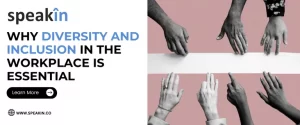Era of Super Specialization with Disproportionate Rewards

We have heard, lived or seen multiple era’s, be it industrial revolution, lifetime employment, internet times, blockchain era and so on. The last two decades has silently brought in another era – an era of experts, from millions of opportunities being created by technology, we have subtly moved into an era of super specialization. This change is happening across Industries – be it manufacturing, services, agriculture, supply chain, white goods etc.

This fundamental shift has given rise to super specialists with whom organizations will need to engage.
The challenge is that this breed of specialists are not keen to become employees. They are on a quest to derive the so called satisfaction, success or sense of purpose. Let us delve on a few examples. A few people work in stealth mode to develop an AI based Insurance platform, or another set of friends try to crack the code on algorithmic trading and another group works on vernacular content platform. On the other hand, in manufacturing there are specialists who are engaged for developing the best IoT model. Whereas a fulfillment company is seeking specialists in platform development to compete and stay relevant in the industry. These are live examples where specialists have cornered a significant market share.
A market share of brains that has an ROI disproportionate to what our traditional salary model offers. I met a 25 year recently who refused a job with a multinational because they could not value the skills. Another one just walked away stating that a multi-billion dollar company cannot even understand the changed world order. When I asked her what does that mean, the answer was, move away from redundant employee model to valuing skill. Well, these are all Indian examples, if that gives any comfort.
Yes, India is on the cusp of a large-scale intervention of such a workforce and organizations will need to find ways to adapt.
The new order where rewards have no traditional correlation to structured salaries and sense of purpose prevails. In the next decade we would see an S curve situation when it comes to engaging with these specialists, and on their terms, for they can enable us to stay relevant for the future. It is easy to state, but doing something like this is a tectonic shift, an unknown territory. On one vector we need such people and on another vector, our eternal fear pulls us back. Yeah ! the super specialist might share our secrets with a competitor (often heard that !). The lines will blur and we would have to place our trust in the hands of such talent rich resources – after all we would get exponential returns in engaging with them.
- Realization that we need skills for stuff that has not even been conceptualized.
- An era of disproportionate returns for specialists.
- Organizations will need to develop policies on how to engage with super specialists.
- Within a decade, 50% of large organizations will tie up with specialized skill people or startups.
DISCLAIMER:
THE VIEWS AND OPINIONS EXPRESSED IN THIS ARTICLE ARE THOSE OF THE AUTHOR AND DO NOT REFLECT THE VIEWS OF SPEAKIN, ITS MANAGEMENT OR AFFILIATES. SPEAKIN MAKES NO REPRESENTATION AS TO ACCURACY, COMPLETENESS, CORRECTNESS, SUITABILITY OR VALIDITY OF ANY INFORMATION ON THIS ARTICLE AND WILL NOT BE LIABLE FOR ANY ERRORS, OMISSIONS OR DELAYS IN THIS INFORMATION OR DAMAGES ARISING FROM ITS DISPLAY OR USE





